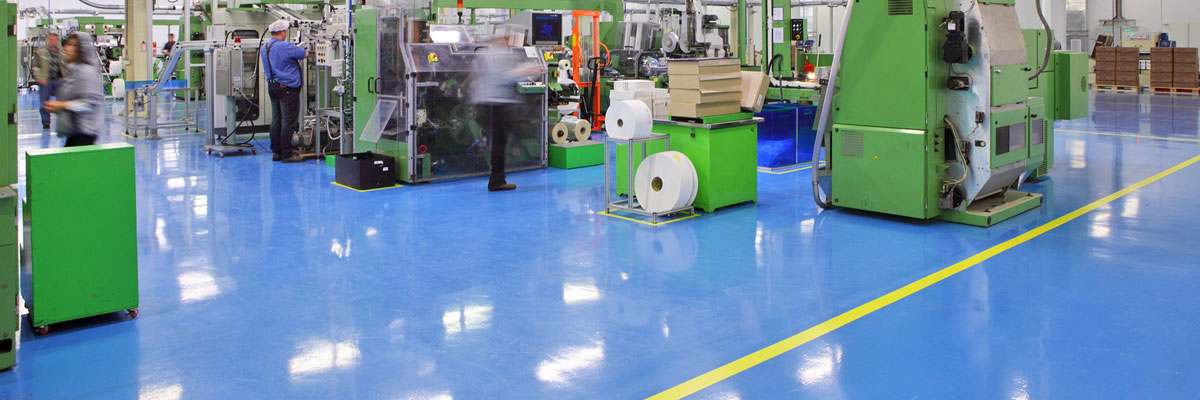Industrial epoxy flooring is a resilient solution for many applications, including warehouses, high traffic areas, garages, medical facilities, and labs. Industrial epoxy is durable enough to withstand the weight and movement of heavy machinery and other high-demand environments. One of the most important benefits of industrial epoxy floor coatings is they are very easy to maintain with a basic cleaning regiment. Here’s how to care for your industrial flooring and extend its life.
Keep the Surface Free of Grit
The floor should be swept regularly to remove dirt and any grit that can scratch or become embedded in the epoxy coating over time. This is especially important if vehicles or machinery are moved on the floor. While epoxy floor coatings can resist abrasion and will take a lot of scratching before showing damage, removing sand and grit often is an easy way to extend the lifespan of the floor system. The easiest way to remove dirt is using a shop vacuum with a soft brush attachment.
Clean Up Chemical Spills
Oil, gasoline, antifreeze, and other automotive chemicals can be wiped up easily with shop towels or paper towels. It’s important to clean the chemical spills as soon as possible. Epoxy flooring will resist stains and damage while isolating the liquid, but not indefinitely.
Neutralize Chemical Spills
Industrial epoxy flooring is very resistant to damage from chemicals but some chemicals can alter the appearance and performance of the floor coating if they aren’t cleaned up right away. Keep a neutralizing agent nearby at all times. Chemical spills should be neutralized first then washed down with water. Use a squeegee to remove excess liquid to a drain.
Prevent Damage to the Floor
When epoxy flooring is used in a factory or warehouse, it’s a good idea to add extra protection to prevent damage to the flooring. For example, welding mats should be used in areas in which welding will take place. Heavy loads can also be placed on plywood to prevent damage to the floor.
Clean Regularly
One of the best cleaning solutions for an epoxy floor coating is diluted ammonia. Add 2 to 3 ounces of ammonia to a gallon of hot water and apply with a microfiber mop. Avoid using cleaning products with vinegar and citric acid. Citrus cleaners or vinegar can slowly degloss the epoxy finish. You should also avoid soap-based cleaners that can leave a hazy build-up on the epoxy floors. This film can also make the floor more slippery when wet. A bi-monthly deep clean is usually recommended to remove buildups of grease and residue.
If the epoxy develops stains, such as rust spots, they can be lightly scrubbed with a soft deck brush or soft scrub pad. Avoid scrubbing too hard and do not use abrasive or harsh chemicals. For grease stains, Tri-sodium phosphate (TSP) or Simple Green can be an effective solution. CLR is effective for treating rust stains. You can let the CLR or biodegradable cleaner sit on the surface for about one minute before scrubbing.

